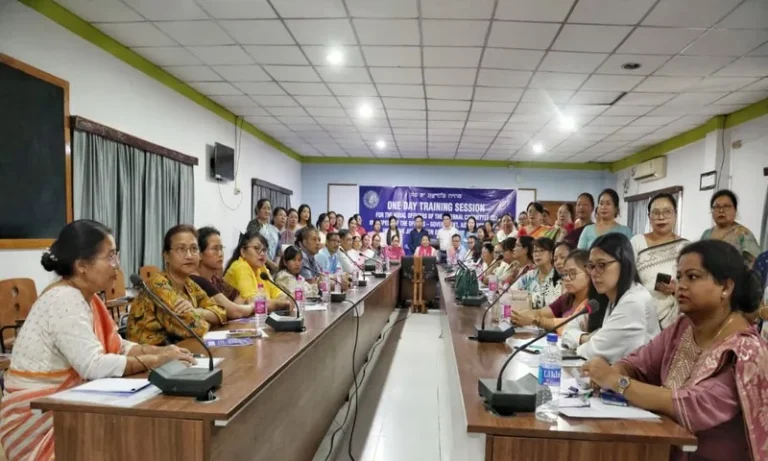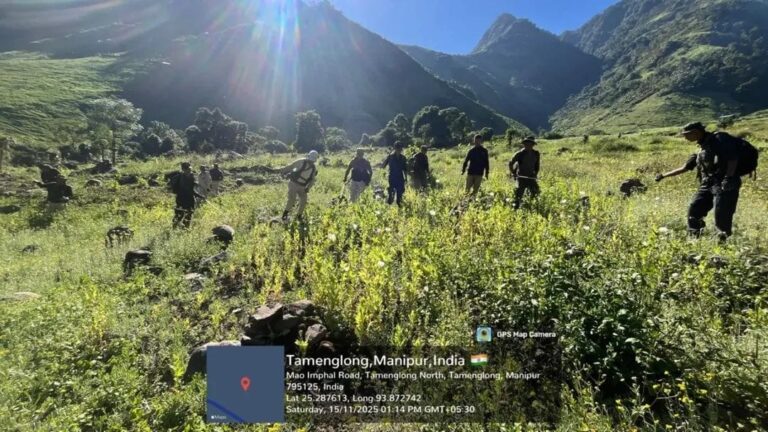Manipur Reports 1,353 Dengue Cases This Year, Spike Reported in October
Summary
Manipur has reported a total of 1,353 dengue cases in 2024, with a significant spike in the month of October. The state’s health authorities are on high alert as dengue fever, a mosquito-borne disease, continues to spread across various districts. The surge in cases has raised concerns, prompting local authorities to implement stringent preventive measures to control the outbreak. With the rise in infections, the focus is now on intensifying public health campaigns, ensuring access to medical care, and ramping up efforts to control the breeding of mosquitoes.
Dengue Surge in Manipur: A Growing Public Health Crisis
The Rising Numbers: What’s Behind the Spike?
Dengue fever is no stranger to tropical regions like Manipur, but the recent surge in cases is alarming. With 1,353 cases reported this year alone, the number is raising eyebrows, especially since October saw a sharp increase. But what exactly is driving this spike in dengue cases?
One major reason is the ideal breeding conditions for mosquitoes during the rainy season, which extends into October. Puddles of stagnant water, poor drainage systems, and waterlogging after heavy rains create perfect breeding grounds for the Aedes aegypti mosquito, the primary carrier of the dengue virus. Manipur’s dense urbanization, coupled with improper waste management, has further exacerbated the problem.
What Exactly Is Dengue, and Why Should You Care?
Dengue is a viral infection transmitted to humans through the bite of infected mosquitoes, primarily the Aedes species. The symptoms can range from mild to severe, with common signs including high fever, severe headaches, joint and muscle pain, rashes, and in some cases, bleeding. Severe dengue, also known as dengue hemorrhagic fever, can lead to organ failure and even death if not treated promptly.
The reason dengue is so dangerous is that it can escalate quickly. At first, the symptoms may resemble those of the flu, causing people to delay seeking medical attention. But as the illness progresses, the risk of complications increases, leading to potentially life-threatening conditions.
The Impact of October’s Spike in Dengue Cases
October 2024 has seen a marked increase in dengue cases in Manipur. The spike is concerning because it puts immense pressure on the healthcare system, which is already stretched thin due to other health crises. Hospitals and clinics are seeing a significant influx of patients presenting with dengue symptoms, leading to concerns about the availability of medical resources, such as hospital beds, medications, and even blood transfusions, which are often required in severe cases.
This spike has also forced the authorities to ramp up their public health campaigns, encouraging citizens to take preventive measures seriously. This includes clearing stagnant water, using mosquito repellents, and ensuring that homes and surroundings are clean and free of mosquito breeding sites.
Government Response: What’s Being Done to Combat the Outbreak?
The Manipur government has been quick to respond to the dengue outbreak, but the scale of the problem is proving to be a formidable challenge. One of the key strategies has been launching extensive awareness campaigns to educate the public about the dangers of dengue and how to prevent it.
In addition to awareness drives, health authorities have been conducting fumigation drives in high-risk areas to kill adult mosquitoes and reduce the mosquito population. However, while fumigation can help reduce the number of mosquitoes, it is not a long-term solution. The focus now is on encouraging the community to take personal responsibility for preventing mosquito breeding in and around their homes.
The Role of Healthcare Providers in Managing the Crisis
Healthcare providers across Manipur are working tirelessly to manage the influx of dengue cases. Hospitals are on high alert, with many setting up special wards to treat dengue patients. Doctors are urging people to seek medical attention as soon as they notice symptoms, especially since early diagnosis and treatment can prevent complications.
The government is also ensuring that hospitals are well-stocked with the necessary medications and equipment to treat severe cases. This includes ensuring that there is enough supply of intravenous fluids and blood transfusion equipment, which are crucial for treating severe dengue cases.
How Dengue Spreads and How You Can Protect Yourself
Understanding how dengue spreads is the first step in protecting yourself and your family. Dengue is transmitted through the bite of an infected Aedes mosquito, which typically bites during the early morning or late afternoon. Once a mosquito is infected with the dengue virus, it can spread the disease to other humans through its bites.
So how can you protect yourself? Here are some simple steps:
- Use mosquito repellents: Applying mosquito repellent on exposed skin is one of the most effective ways to prevent mosquito bites.
- Wear protective clothing: Long sleeves, long pants, and hats can help reduce the number of mosquito bites.
- Eliminate standing water: Mosquitoes breed in stagnant water, so it’s important to eliminate any sources of standing water around your home. This includes flowerpots, buckets, and discarded tires.
- Use mosquito nets: Sleeping under a mosquito net can provide protection, especially for young children and pregnant women, who are more vulnerable to mosquito bites.
The Importance of Community Participation in Preventing Dengue
While the government is doing its part to combat the dengue outbreak, community participation is crucial for long-term success. The key to controlling dengue is reducing the mosquito population, and this can only be achieved if communities work together to eliminate breeding sites.
Neighborhood clean-up drives, proper waste disposal, and ensuring that water storage containers are covered are all important steps that can help reduce the number of mosquitoes in a community. By taking these measures, residents can significantly reduce the risk of dengue and protect themselves and their families.
The Bigger Picture: Climate Change and Vector-Borne Diseases
While dengue is a serious problem in Manipur, it’s part of a much larger issue affecting tropical and subtropical regions around the world. Climate change is contributing to the spread of vector-borne diseases like dengue. As global temperatures rise, mosquitoes are able to survive in areas that were previously too cold for them, leading to the spread of diseases to new regions.
Manipur’s tropical climate, combined with changing weather patterns, is creating the perfect conditions for mosquitoes to thrive. The increasing frequency of heavy rainfall, followed by periods of high humidity, is leading to more mosquito breeding sites, which in turn is contributing to the rise in dengue cases.
What the Future Holds: Is There a Solution in Sight?
While the current dengue outbreak in Manipur is concerning, there is hope on the horizon. Scientists are working on several fronts to develop solutions that can help control the spread of dengue. This includes researching vaccines that can provide immunity against the virus, as well as developing new methods for controlling mosquito populations.
One promising solution is the use of genetically modified mosquitoes that are unable to reproduce. This approach has been tested in several countries and has shown significant success in reducing the mosquito population. However, it will take time before this technology can be widely implemented.
For now, the best solution is prevention. By taking steps to protect yourself and your community, you can help reduce the spread of dengue and protect yourself from this dangerous disease.
FAQs
- What is dengue, and how does it spread?
Dengue is a viral infection spread by the bite of infected Aedes mosquitoes, typically during early morning and late afternoon. - What are the symptoms of dengue fever?
Symptoms include high fever, severe headache, joint and muscle pain, skin rashes, and in severe cases, bleeding. - Why is there a spike in dengue cases in October in Manipur?
October’s spike is attributed to prolonged rainy conditions, creating ideal breeding grounds for mosquitoes, coupled with poor waste management and urbanization. - How can dengue be prevented?
Dengue can be prevented by using mosquito repellents, wearing protective clothing, eliminating standing water, and sleeping under mosquito nets. - What is being done to control the dengue outbreak in Manipur?
The Manipur government has launched public awareness campaigns, fumigation drives, and is focusing on improving medical facilities to treat dengue patients.



